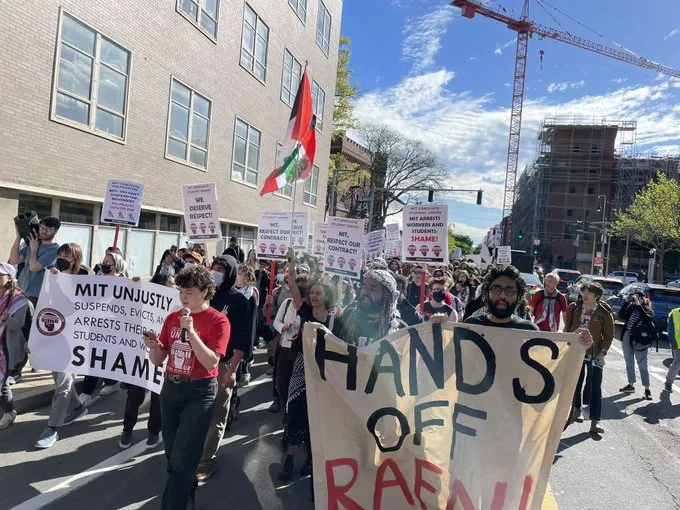Recent developments from the Massachusetts Institute of Technology (MIT) show that tensions escalated this week as nine students, a mix of graduate and undergraduate students previously involved in a pro-Palestine encampment, were arrested for blocking access to the MIT Stata Center parking garage. This incident follows a series of confrontations between authorities and demonstrators amidst a multi-week protest campaign on the Kresge lawn, organized by “Students Against Genocide.”
According to organizers of the encampment, MIT police employed forceful tactics, including shoving students to the ground during the arrests, sparking accusations of unnecessary aggression. The MIT administration remained tight-lipped, declining to comment on the unfolding events.
The arrests came hot on the heels of suspensions issued to 23 MIT students who had been active participants in the encampment. The decision to suspend these students was met with controversy and fueled further dissent within the campus community.
Meanwhile, the Cambridge City Council stepped into the fray, passing a resolution in support of pro-Palestine protesters at both Harvard and MIT. The resolution, backed by seven of the nine council members, emphasized the importance of respecting the rights of students to engage in peaceful protest activities.
Protests continued:
Councilor Ayesha M. Wilson, echoing sentiments shared by Rep. Ayanna S. Pressley (D-Mass.), emphasized the need for protestors to be treated with “dignity and respect,” condemning any attempts at the criminalization of free speech.
However, amid the protests, a key distinction emerged between the situation at MIT and Harvard. While Harvard’s pro-Palestine encampment entered its third week with relatively peaceful demonstrations, MIT witnessed a more confrontational atmosphere, with clashes between protestors and campus authorities.
The divide in approaches between the two institutions underscored broader debates surrounding free speech and dissent on college campuses. MIT President Sally A. Kornbluth’s threat of suspension against encampment participants highlighted the complex dynamics at play, with the administration balancing concerns over campus stability against the right to protest.
At the same time, tensions are rising, and questions arose about the fate of the suspended students regarding their housing status on campus.
The resolution passed by the Cambridge City Council seemed promising until reports of at least one graduate student, his wife, and 5-year-old child were removed from campus housing at MIT, as reported by the Boston Globe.
“Suspended MIT and Harvard protesters are barred from graduation and evicted from campus housing,” Boston Globe reported on Sunday.
